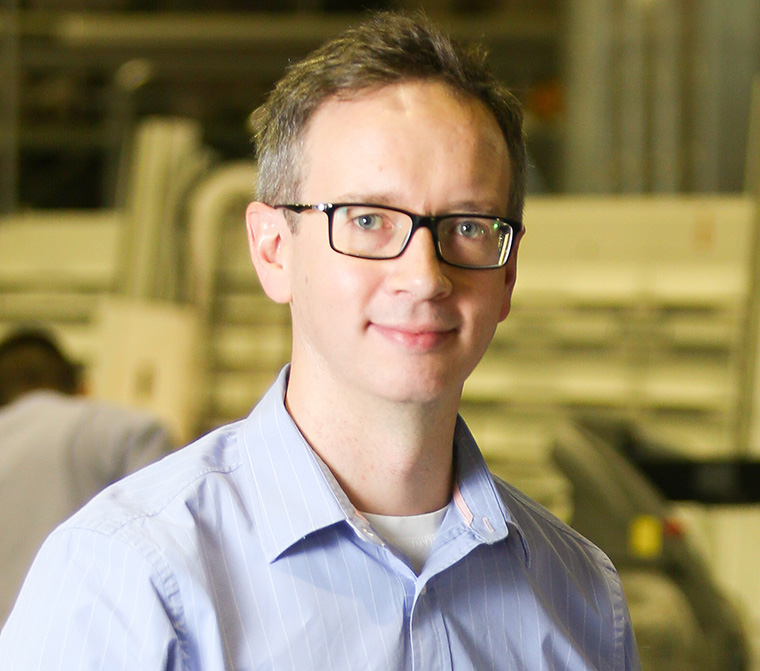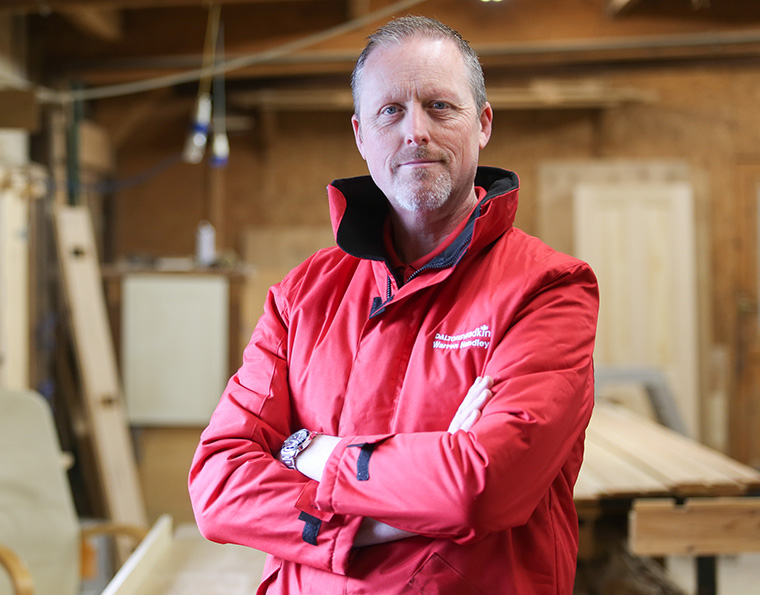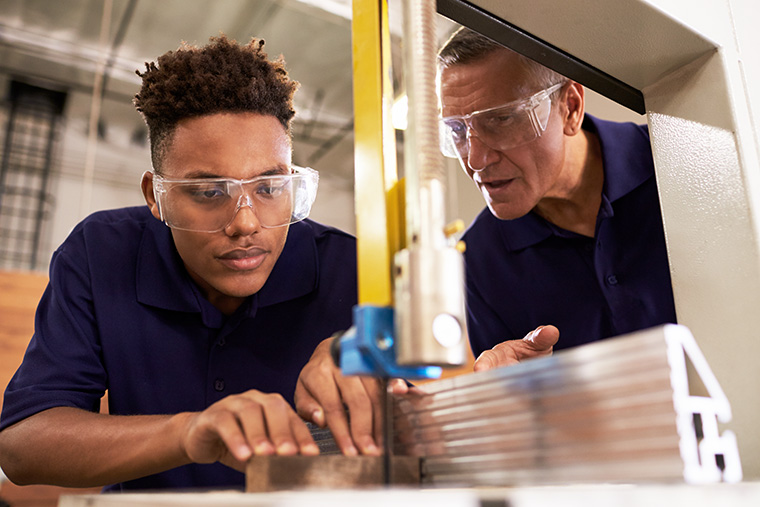First we hear from Daltons Wadkin director Alex Dalton, and then operator trainer. Warren Handley.
Alex Dalton: “Training operates almost like a second business within us,” says Daltons Wadkin director Alex Dalton. “We have three full-time trainers and we’re set to hire a fourth before Covid-19 hit earlier this year. It had seen a great deal of growth – because it is a legal requirement – to the point that we were delivering machine and power tool training to businesses right across the UK and Ireland.

“Most manufacturing companies closed their doors in March and have only re-opened fairly recently. Procedures and risk assessments have been put in place, allowing firms to operate as close to normal as possible. That, however, has been a little tougher to achieve with on-site and external training.
“Due to its very nature, training is hands-on and it’s hard to get away from that. We work with different machines, different tools, and different manufacturers; tailoring all the courses according to the needs of our customers and clients.
“In a Covid-19 environment, however, with social distancing measures that are in place, there are challenging hurdles that businesses, like ours, need to get over to deliver training not only to the same high standard but safely, too.
“As with every aspect of our business, we carried out a rigorous risk assessment and produced suitable method statements that allowed us to carry out training, both on-site with customers or even right here at our own Nottingham-based workshop - depending on what was the safest approach.
“We’re starting to see the demand for the training rise again. But how can businesses like ours carry it out safely?
“Warren Handley has 36 years of experience working and training in the woodworking industry and he has shared his insight into the best practice and how manufacturers can deliver their expertise safely to its customers, clients, and colleagues.”
Deal with the early sense of apprehension head on
Warren Handley: “Training, before COVID-19, was fairly fast-paced and was immensely important to clients and customers,” explains operator trainer Warren Handley.

“No one job is the same. We could be spending several days with businesses training multiple colleagues across multiple machines, or working with a smaller company to train all its operators across a number of machines in one go.
“Like many, however, I could only watch as my calendar got decimated. Everything that was booked was cancelled or put on hold, and shortly after that, I was put on furlough. Training dropped off the radar completely.
“None of us have experienced anything like this before and there’s still certainly a sense that we’re all treading water. In the beginning, when we were starting to phase training back into the business, I’d be lying if I said there wasn’t a feeling of apprehension about what delivering that training was going to be like and whether it could be realistically delivered safely.
“That apprehension, however, disappeared after we discussed the logistics of how it would work and since delivering the first course, it has become second nature.
Above all else, comfort is key
“The most important factor is comfort – on both sides of the coin,” says Warren, “you can’t have people working and learning on these dangerous machines if they are not comfortable with it.
“Even before arriving, talk to the client to make sure you’re aware of their internal practices. There are varying degrees when it comes to procedures. Every business has got a plan in place, but some are stricter than others
“Naturally, training takes longer to complete under these circumstances so be prepared to remain with a business for as long as is required to deliver the course to the highest possible standard.
“Typically, if you have got five machines to run through, you’re working with groups of up to four people and takes four days to go through that, then so be it.
Pivoting to provide social-distanced demonstrations
“The first thing we did was reduce the number of demonstrations we would hold per day. It’s important not to rush through training when these COVID-19 measures have been put in place,” says Warren.
“The way demonstrations take place has changed as well. Having smaller groups makes it easier to truly demonstrate and explain what you’re showing
“Changing the blades on a machine is a perfect example of a demonstration that requires the trainees to get closer so they can see exactly what is being done
“It’s time to switch that up. A new process is required. Tell the trainees exactly what you’re going to do, actually perform it, and then invite the operators to see what has been done, one-by-one, after stepping away.
“Admittedly, the process is slower and longer and requires more explaining, but if this is what it takes to help operators understand clearly what needs to be done, that is ultimately what we are there for.
“Make the most of your environment and be willing to compromise – every job is completely different and that includes the workshops we deliver the training in.

“Some are spacious. Some are not. And you have to adapt accordingly and even be prepared to make sacrifices to prioritise the safety and wellbeing of those you’re working with.
"For example, we recently trained an operator on a machine that was located in a large, spacious, area within a client’s workshop, doing so even though there was a better machine to have trained on.
"Why? Because the better machine was located in a more refined area, which would have compromised the safety of the operators and broke social distancing rules.
"The environment is as important as the training you’re delivering. If you don’t get that right, you will never teach anyone anything.
Don’t forget your own flask of tea!
"I don’t carry tea around, but I do carry water and that has been my saving grace, especially when you’re talking all day like most trainers do.
"That said, I would definitely advise you to bring a flask of coffee or tea with you. With the rules in place, most complementaries a business would offer you on arrival are no longer there.
Final thoughts
"Training has changed and it is anyone’s guess as to how long it is going to be like this for.
"It doesn’t mean, however, that training cannot be delivered effectively. Smaller focus groups can help trainers get their messages and demonstrations across easier while making compromises - like training on a different machine even if it’s technically not a better one - to benefit health and safety is going to be the norm for the foreseeable.
"It’s about making the most of your environment, introducing a level of comfort suitable for everyone involved.
"Get that right and you will get your training right."








